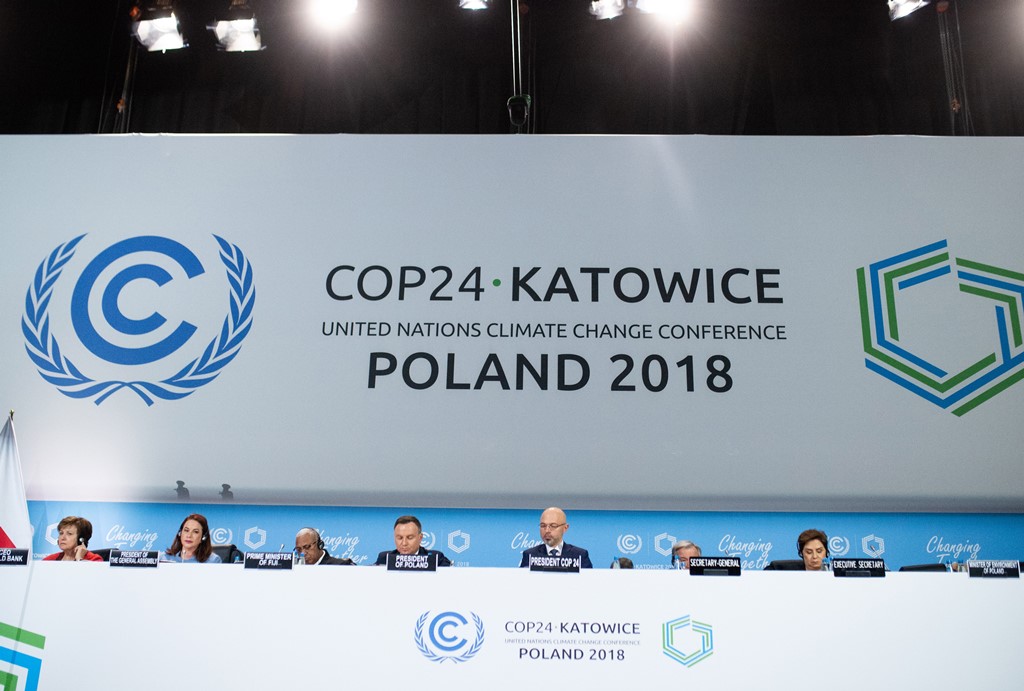Significant Success of the Katowice Climate Summit

What does the rulebook contain?
The text adopted on 15 December defines how the Paris Agreement will operate in such areas as the system for measuring and reporting greenhouse gas (GHG) emissions, financing, and national contributions. The biggest achievement is the unification of transparency rules—the parties to the convention have set uniform rules that will apply from 2024. Only the least-developed countries and small developing island states will be able to participate voluntarily.
This compromise paves the way for the fulfilment of one of the most important goals that guided the Paris Agreement—the creation of a universal system and decreasing the importance of the division into developed and developing countries. The Katowice package also specifies the elements from which national contributions may consist, plans a mechanism for review of the rules and obliges developed countries to set by 2020 a new target for financial support (currently $100 billion annually by 2020).
In which issues was agreement not reached?
Countries did not agree a market mechanism to reduce GHG emissions. Art. 6 of the Paris Agreement allows for the transfer of mitigation outcomes but does not specify how it should take place. Such a mechanism was in operation under the Kyoto Protocol, but the methodology of the calculations lacked trust. During the negotiations in Katowice of the rulebook, Brazil insisted on loose rules for the mechanism and the possibility of transferring Certified Emission Reductions units obtained under the previous mechanism to the new system, which would be based on real reductions of GHG emissions achieved by a given country. However, the blurring of these principles risked dismantling the whole system (through double accounting of emissions reductions) and thus undermining efforts to limit global average temperature increases. In the absence of a willingness to strike compromise, the delegates agreed to postpone negotiations on this matter to the next year.
How has Poland’s presidency of COP24 been rated?
Positive evaluations of the effects of the work of the Polish presidency prevail. Commentators point to the circumstances of the negotiations (including the announced U.S. withdrawal from the agreement, Brazil’s cancelation of its proposal to host the next climate summit, and Turkey’s threats to block the negotiations) and the nature of the talks—technical and more detailed—which made them more demanding than even those in Paris.
At the same time, criticism fell on the Polish presidency for the lack of appeals for greater ambition on climate action and for the promotion of fossil fuels at COP24. The text of the package failed to include a strong reference to the outcome of the Intergovernmental Panel on Climate Change (IPCC) report on limiting global warming to 1.5 ℃.
What’s next in the negotiations?
UN Secretary General António Guterres has planned an additional climate summit in New York in September 2019. It will be devoted above all to raising the ambition on climate policy—acceleration of mitigation efforts and obtaining additional funds from developed countries.
At the earliest on 4 November 2019, President Donald Trump will be able to notify the parties about the U.S. withdrawal from the Paris Agreement, although the adoption of the rulebook with uniform reporting rules may be an important argument for staying.
With Brazil dropping out as host of COP25, Chile took over, with the summit probably taking place in January 2020. The negotiations through then will focus on the issue of the provisions of Art. 6 on the transfer of mitigation outcomes and preparation for the announcement of new nationally declared contributions (to 2030).




